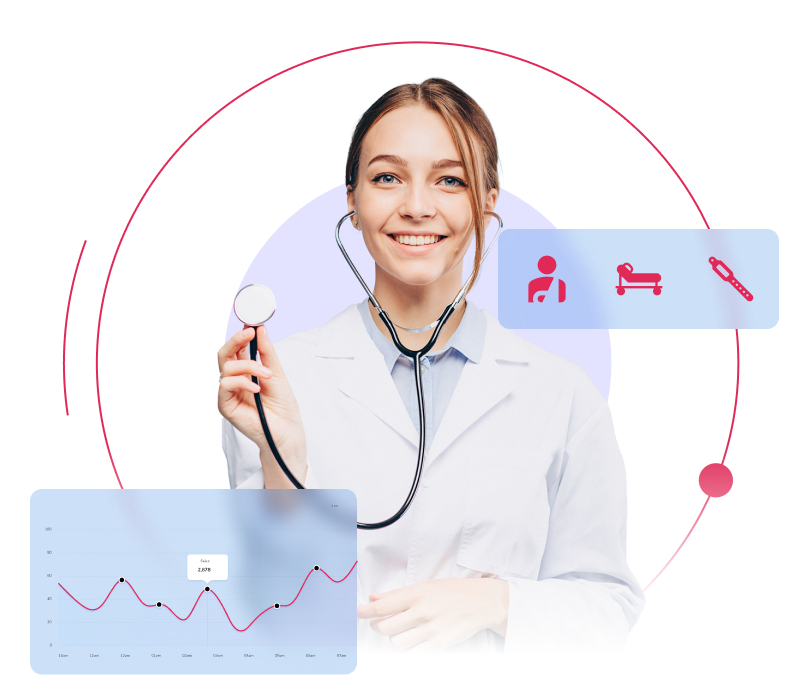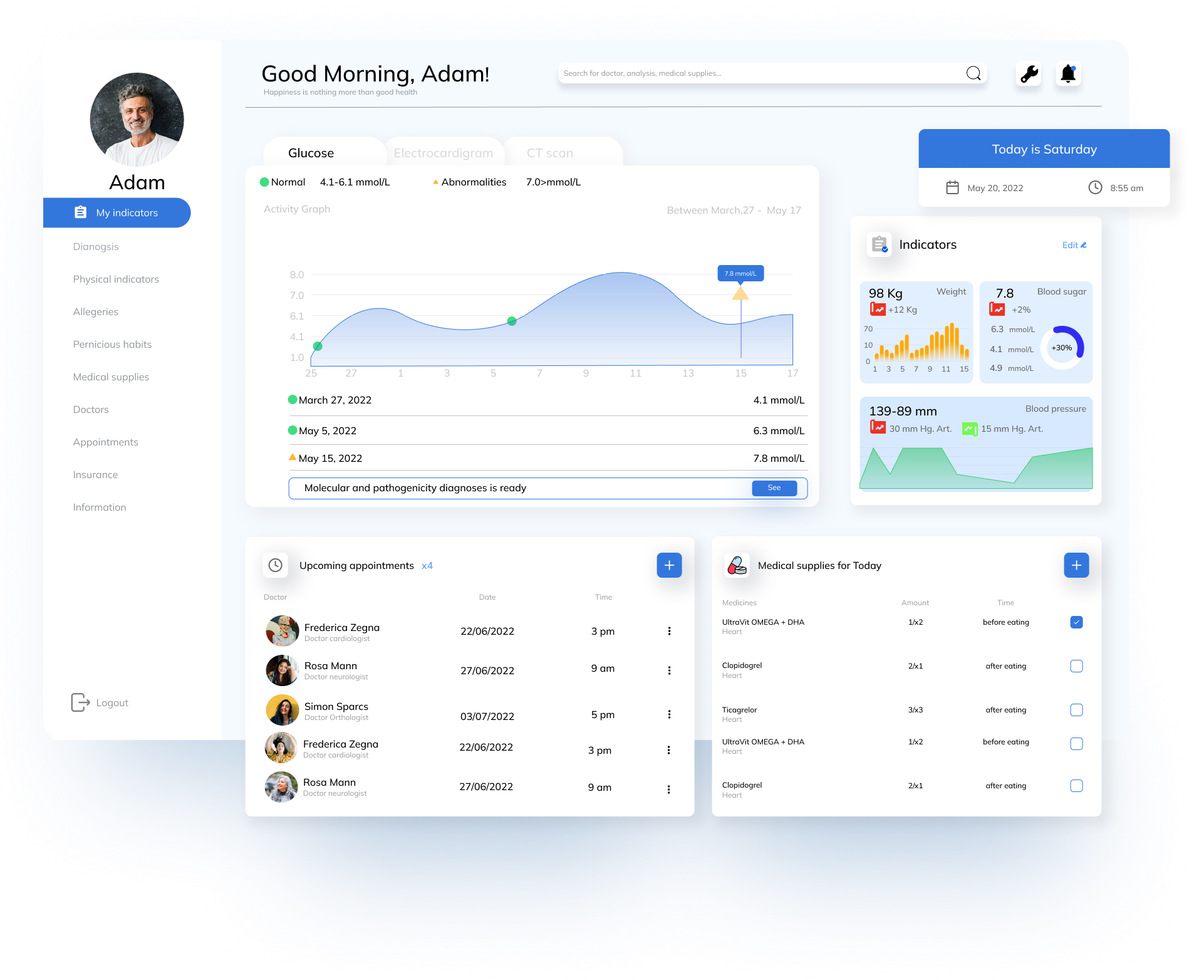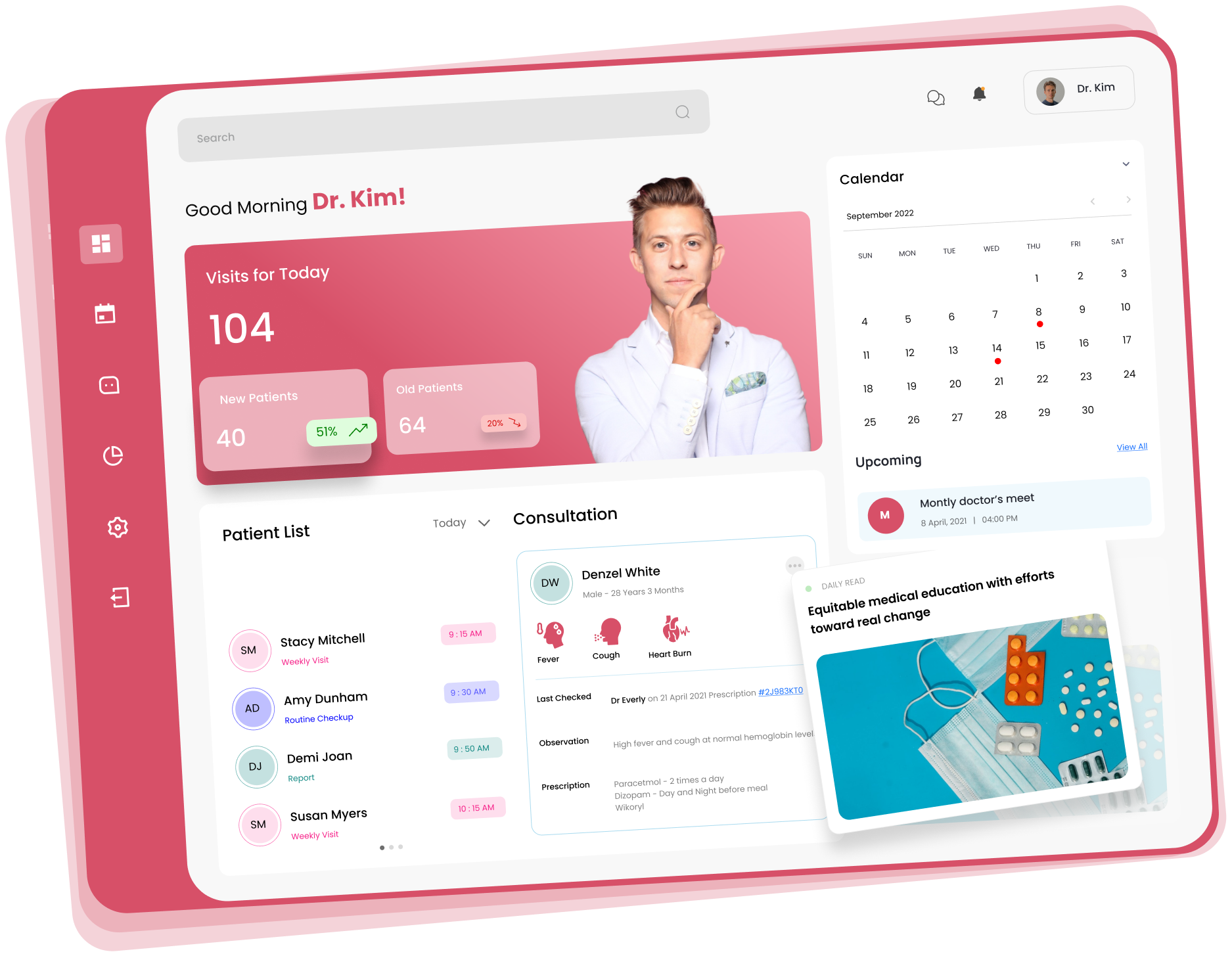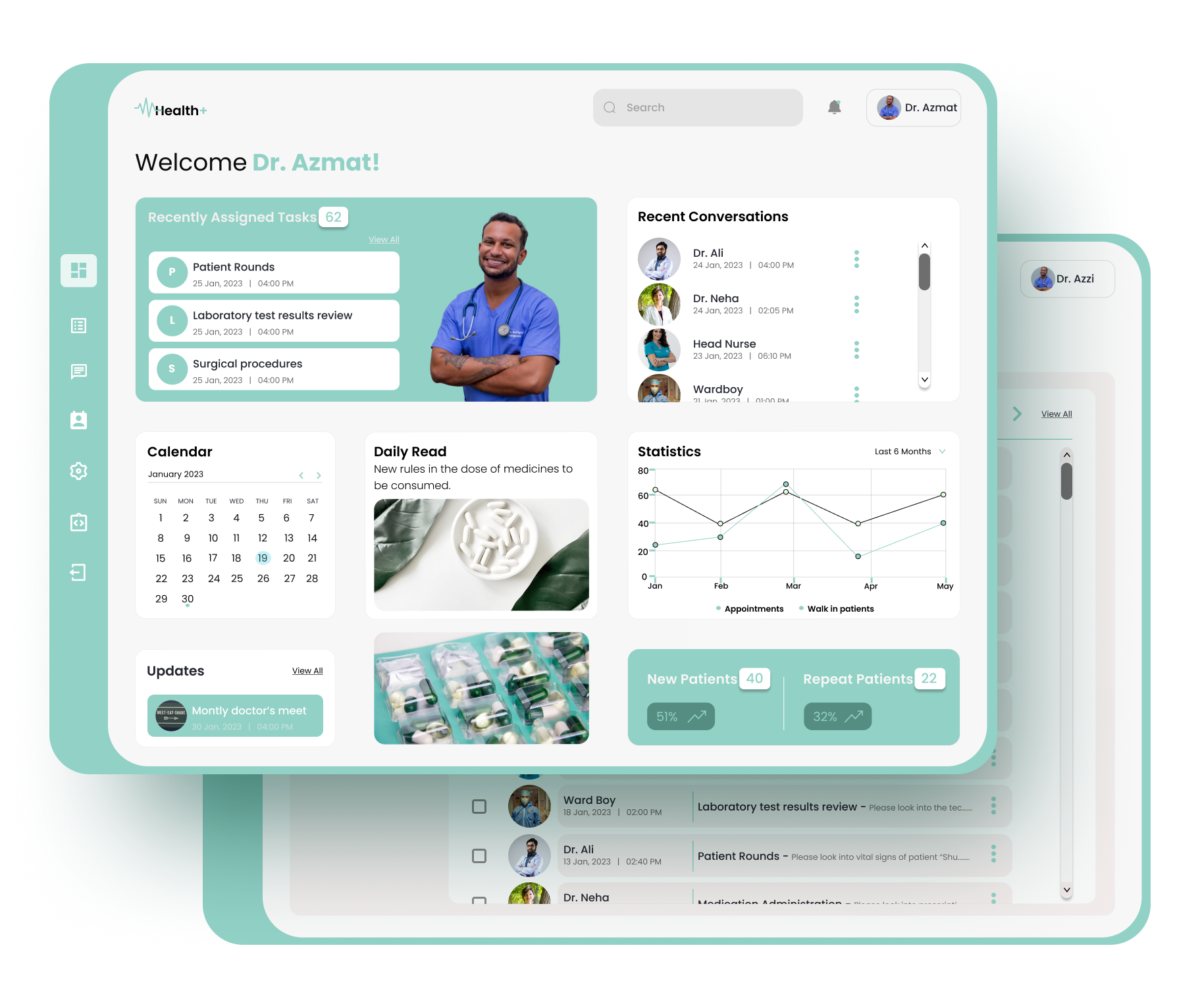Revolutionizing Health with Data-Driven Precision
We ensure compliance with HIPAA and GDPR, promoting personalized medicine and preventive care. Embracing digital healthcare, we enhance telehealth experiences and empower its future.
Contact us

Benefits of Managing Data in Health
20
%
Hospitals that adopted predictive analytics witnessed a 15% reduction in the average length of stay and about a 20% reduction in patient readmission rates.
90
%
Through predictive bed assignment and demand forecasting, some hospitals have achieved up to a 90% occupancy rate without negatively affecting patient care.
25
%
By using data for predictive maintenance of medical equipment, some healthcare institutions have seen a 25% reduction in maintenance costs.
HealthTech Challenges Suite: Transforming Healthcare in the Digital Era
The exchange and integration of health data between different healthcare systems, providers, and platforms remain a challenge. Standardizing data formats, developing robust interoperability frameworks, and overcoming technical barriers are essential to enable seamless sharing of patient information and improve care coordination.
The digital divide refers to the disparities in access to and utilization of digital health technologies among different populations. Addressing issues related to affordability, digital literacy, and access to internet connectivity is crucial to ensure equitable access to healthcare services and bridge the gap in health outcomes.
As healthcare organizations increasingly rely on digital systems and connected devices, they become vulnerable to cyber threats. Protecting against data breaches, ransomware attacks, and other cybersecurity risks requires ongoing investment in robust security measures, employee training, and proactive monitoring to safeguard patient information and maintain the integrity of healthcare systems.
The healthcare industry operates within a complex regulatory landscape that continually evolves to address emerging technologies and practices. Staying compliant with regulations such as HIPAA, GDPR, and FDA guidelines, while adapting to changing requirements, poses challenges for healthcare organizations. Keeping up with evolving standards and ensuring adherence to ethical and legal obligations is vital for maintaining trust and compliance within the industry.

Electronic Health Record (EHR) System:
Centralized Patient Information: EHRs store comprehensive patient data in one place, improving access to medical history, diagnoses, medications, and lab results.
Enhanced Care Coordination: EHRs enable seamless sharing of patient information among healthcare providers, leading to better care coordination and reduced medical errors.
Improved Efficiency: EHRs automate manual processes, such as record-keeping and prescription management, streamlining workflows and reducing paperwork.
Decision Support Tools: EHRs can integrate clinical decision support tools, providing alerts, reminders, and evidence-based guidelines to aid healthcare professionals in making informed decisions.
Know more

Telehealth Platform:
Remote Patient Monitoring: Telehealth platforms enable remote monitoring of patients' vital signs and health conditions, allowing timely interventions and reducing the need for in-person visits.
Increased Access to Care: Telehealth eliminates geographical barriers, providing convenient access to healthcare services, especially for rural or underserved populations.
Cost Savings: Telehealth reduces healthcare costs by minimizing travel expenses, hospital readmissions, and unnecessary emergency room visits.
Continuity of Care: Telehealth facilitates ongoing communication between patients and healthcare providers, ensuring consistent follow-ups and continuity of care.
Know more

Health Data Analytics Solution:
Insights for Population Health Management: Data analytics solutions can identify population health trends, enabling proactive interventions, disease prevention programs, and resource allocation.
Personalized Medicine: Analytics tools analyze individual patient data to support personalized treatment plans and targeted interventions based on patient characteristics and medical history.
Operational Efficiency: Analytics platforms help optimize resource allocation, streamline operations, and identify areas for process improvement, leading to cost savings and enhanced efficiency.
Predictive Analytics: By leveraging machine learning algorithms, data analytics solutions can predict health outcomes, disease progression, and identify high-risk patients, facilitating proactive care and preventive measures.
Know more

Guided by Excellence in Data, Paving the Way for Innovation
Embark on a journey of innovation through data. We develop advanced analytics and cutting-edge methodologies to extract actionable insights, driving strategic decision-making and unlocking untapped potential.
Know more